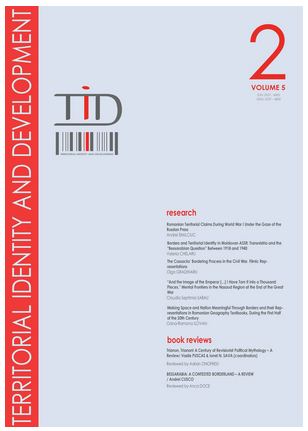SUSTAINABILITY, RESILIENCE AND WELLBEING CONVERGENCES FOR PLACE-BASED APPROACHES
SUSTAINABILITY, RESILIENCE AND WELLBEING CONVERGENCES FOR PLACE-BASED APPROACHES
Author(s): Alexandru Bănică, Ionel Muntele, Marinela IstrateSubject(s): Geography, Regional studies, Regional Geography, Environmental Geography, Applied Geography
Published by: Universitatea Babeş-Bolyai
Keywords: multidimensional concepts; nature-based solutions; human development; governance; territorial capabilities; paradigm shift;
Summary/Abstract: The present article is a conceptual and bibliometric radiography of ‘the new trinity of governance’ (Joseph & McGregor, 2020) that includes sustainability, resilience, and wellbeing from the viewpoint of territorial approaches. First, the paper makes theoretical considerations of the three concepts by analysing their definition and characteristics. Second, the study proposes a bibliometric analysis of the three well-established concepts, taking into account the papers that include the relations between all three in a single framework. Third, we developed a content analysis considering only the most relevant papers in the proposed study area as we try to highlight the main theoretical and empirical implications of overlapping sustainability, resilience, and wellbeing from the viewpoint of place-based strategies and planning as reflected by current scientific research. The results show the prevalence of four major directions of research which include the three concepts as pillars for the theoretical and empirical approaches: 1) nature-centred assessments, 2) safe and sustainable human activities and critical services, 3) participative governance for planning human settlements, 4) individuals’ and communities’ culture and identities. Finally, the missing link that can transform all these convergent, but still diverse, perspectives is identified as being the capabilities theory of Amartya Sen. To accomplish this role, the classic theory was reinterpreted in a broader sustainability-related approach that takes into consideration the equity and wellbeing of individuals and communities, but also the equilibrium between nature and human development. Conclusively, if managed wisely, the new integrative approach could mark a paradigm shift that might push forward new ways of planning and governing sustainable, safe and liveable territories.
Journal: Territorial Identity and Development
- Issue Year: 6/2021
- Issue No: 2
- Page Range: 25-46
- Page Count: 22
- Language: English

